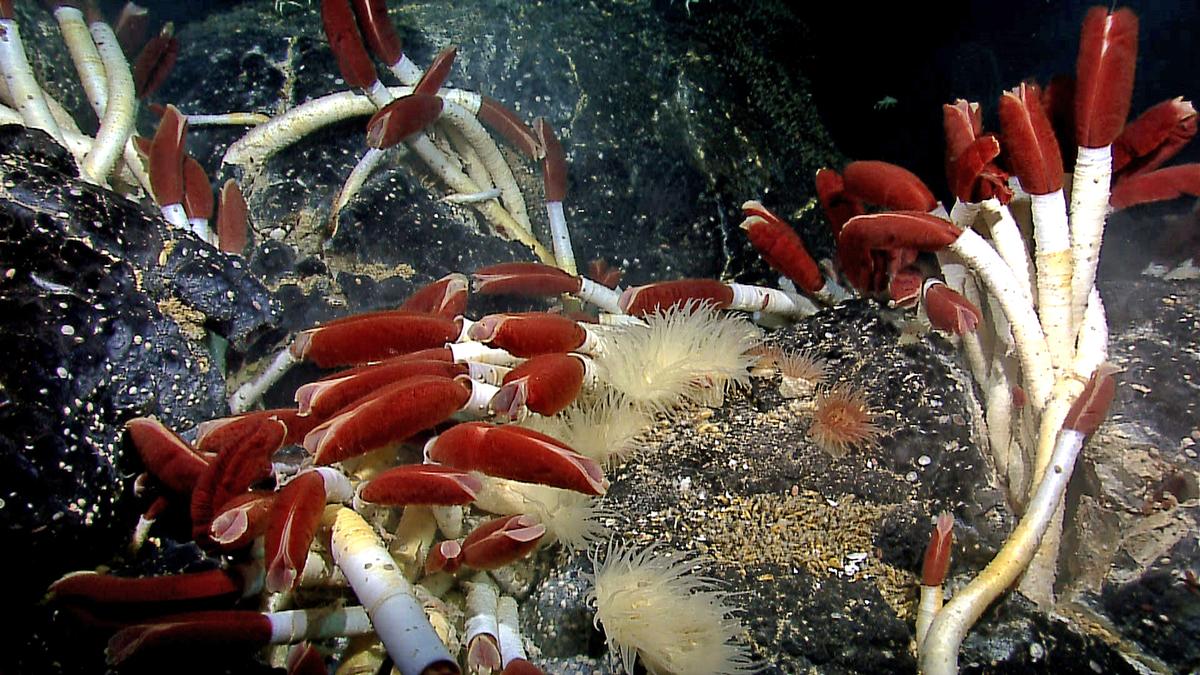Science
Researchers Discover Life Thriving at Unprecedented Ocean Depths

Life continues to astound scientists with its resilience, as recent discoveries reveal thriving ecosystems deep within the ocean. On July 30, 2023, researchers exploring the Kuril-Kamchatka and Aleutian trenches uncovered the deepest known communities of life, flourishing at depths ranging from 5.8 to 9.5 km below the surface. These communities are sustained through a process known as chemosynthesis, where organisms derive energy from chemicals, such as methane and hydrogen sulphide, rather than sunlight.
The expedition follows the historic descent of explorers Don Walsh and Jacques Piccard in 1960, when they reached the bottom of the Challenger Deep in the Mariana Trench. At that time, they encountered a small fish at a staggering depth of 8.1 km, hinting at the potential for life in these extreme environments.
The newly discovered ecosystems span over 2,500 km along the ocean floor, primarily inhabited by unique organisms, including worms known as siboglinids and various types of clams. These life forms thrive in areas where chemical-rich fluids emerge from geological faults, created by microbes that break down organic matter. This process generates methane, which may form gas hydrates under the intense pressure found at such depths.
Expanding Knowledge of Deep-Sea Ecosystems
The findings from this exploration suggest that these chemosynthetic ecosystems could be more widespread than previously understood. According to the research team, this discovery emphasizes a potentially significant role for deep-sea microbes in the Earth’s carbon cycle. Instead of allowing methane to escape into the ocean or atmosphere, these microbes may store it underground, thus influencing global climate dynamics.
This research not only enhances our understanding of life in the deep ocean but also raises important questions about the ecological balance in these remote environments. As scientists continue to explore these depths, they uncover not only the resilience of life but also the intricate relationships between organisms and their chemical surroundings.
The implications of these discoveries stretch beyond academic curiosity. Understanding how life adapts to extreme conditions could inform future research on climate change and the health of our planet’s oceans. As we delve deeper into the mysteries of the ocean, each expedition reveals more about the hidden life forms that contribute to our understanding of biodiversity and the resilience of ecosystems in the face of environmental challenges.
-

 World4 months ago
World4 months agoSBI Announces QIP Floor Price at ₹811.05 Per Share
-

 Lifestyle4 months ago
Lifestyle4 months agoCept Unveils ₹3.1 Crore Urban Mobility Plan for Sustainable Growth
-

 Science4 months ago
Science4 months agoNew Blood Group Discovered in South Indian Woman at Rotary Centre
-

 World4 months ago
World4 months agoTorrential Rains Cause Flash Flooding in New York and New Jersey
-

 Sports4 months ago
Sports4 months agoBroad Advocates for Bowling Change Ahead of Final Test Against India
-

 Top Stories4 months ago
Top Stories4 months agoKonkani Cultural Organisation to Host Pearl Jubilee in Abu Dhabi
-

 Science4 months ago
Science4 months agoNothing Headphone 1 Review: A Bold Contender in Audio Design
-

 Top Stories4 months ago
Top Stories4 months agoAir India Crash Investigation Highlights Boeing Fuel Switch Concerns
-

 Sports4 months ago
Sports4 months agoCristian Totti Retires at 19: Pressure of Fame Takes Toll
-

 Business4 months ago
Business4 months agoIndian Stock Market Rebounds: Sensex and Nifty Rise After Four-Day Decline
-

 Politics4 months ago
Politics4 months agoAbandoned Doberman Finds New Home After Journey to Prague
-

 Top Stories4 months ago
Top Stories4 months agoPatna Bank Manager Abhishek Varun Found Dead in Well









